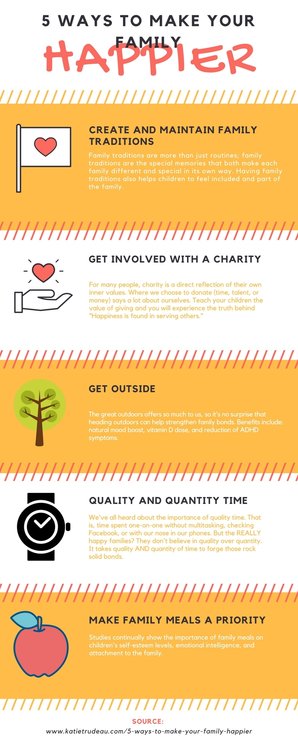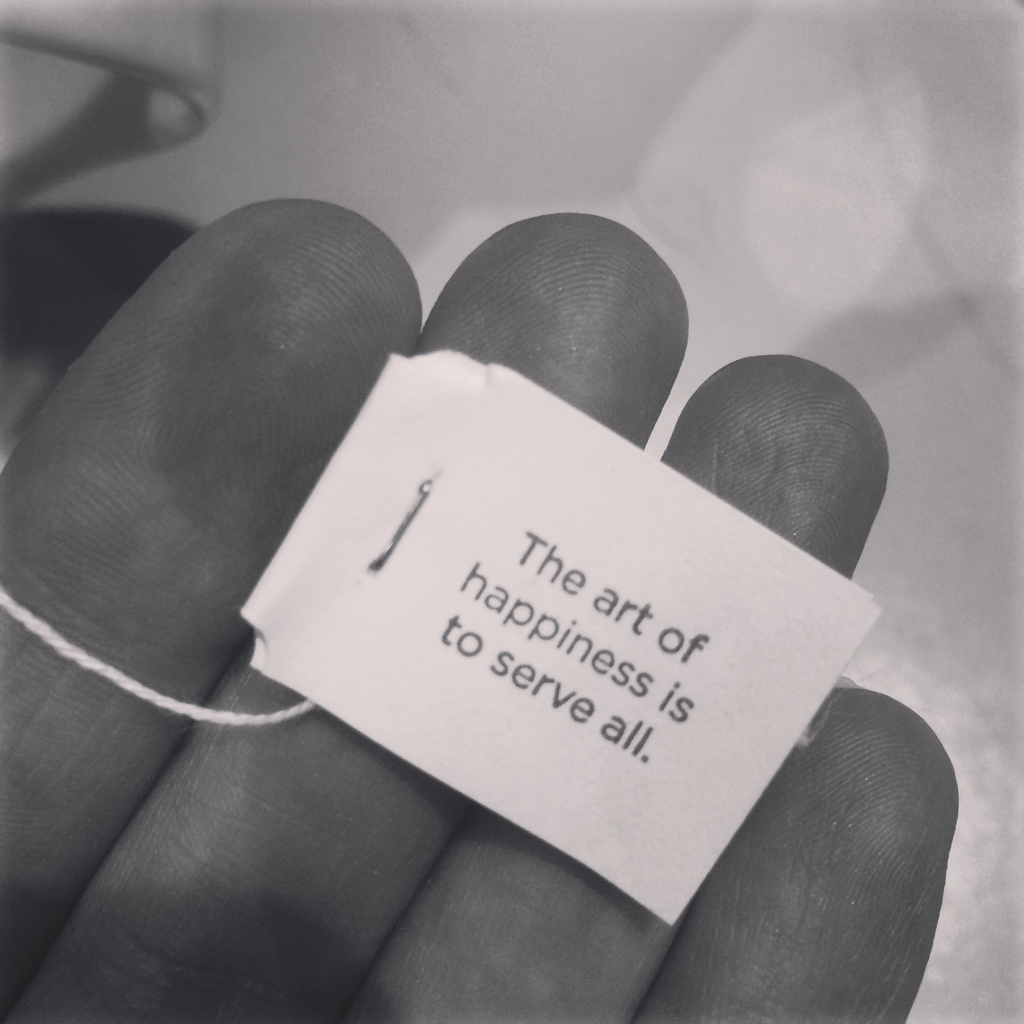|
Guest Post by Elkyra Park This global pandemic has forced schools and several other institutions to shutdown in an effort to protect individuals from getting the disease and stopping the virus from multiplying tenfold all at the same time. This is a bold move initiated by the authorities to curb the spread of the disease. But let’s face it, this is also a burden for working mothers. Hahaha. Sorry. I am not complaining about our family being stuck and safe at home. I am merely stating the reality that working from home while temporary homeschooling can cause disputes among family members. Imagine, your children are stuck in the four corners of your home. They can’t go out to play in the park or to the mall. They can get bored so they act out and throw tantrums just because. You, on the other hand, are busy with your work deadline so you are focused on finishing your task at hand. But little Jane is just so adamant in doing her take-home assignment. You got mad at her for bugging you and this resulted in a shouting match. You know that you could have prevented it but you are on a short fuse. What should you do? Let me share what my friends and I have done to manage temporary homeschooling during lockdown. EXPLAIN You need to open up about what is happening today. This way, your children will understand the current events and the urgent need to stay at home. Be honest as much as you can. FOCUS ON THE CORE SUBJECTS FIRST Set a realistic goal especially if you are new to teaching. Do not try to cover everything in the curriculum. Instead, start with core subjects such as English and Math first and stick to them. This way, you and your child don’t get stressed out too much. Once you have established a study routine, you can try adding other subjects. DON’T BE TOO HARD ON YOURSELF Remember that not everyone can ace the core subjects so don’t be too hard on yourself. You are both in a difficult and unpleasant situation so don’t be too critical. After all, this isn’t your line of work so take it slow. Just give yourself a pat on the back for trying hard. AVOID MAKING THREATS “You have to do this or you will be grounded.” Familiar? Unfortunately, those threats won’t work today because your kids are already grounded. Have you forgotten that they have already been stuck at home for days? Instead, explain to your kids the importance of the task so they understand why they have to do this in the first place. You can cite real life examples that may involve their hobbies or favorites to pique their interest. SET A DAILY ROUTINE Keep in mind that kids are creatures of habit so they thrive well with following a schedule. Try imitating their school routine and apply them to your home schedule. Just like in going to school, add breaks to give kids some rest. Base your work time on their schedule as well. RELAX What I do is wake up earlier than the kids so I still have “me” time (even if it means skipping sleeping in to prepare breakfast and do some of my work). Why do I call this my “me” time? The reason is I still have some quiet, uninterrupted time to do what needs to be done. Those kid-free moments honestly keeps me sane. By the time we start with our makeshift school, I have done about 60% of my tasks so I have less to worry about. This is my kind of relax. Other moms engage in arts and crafts or read books in their spare time. I suggest that you do anything that keeps your mind healthy and happy. Remember, you can’t pour from an empty cup so take care of yourself first. Eat healthy meals and don’t forget to squish exercises into your busy schedule. Bottomline I know that juggling parenting, working, and teaching is not a walk in the park. But we are moms (parents). We rock and we survive everything life throws at us. The best suggestion I can give is to NOT aim for perfection. Just try to survive this difficult time. It is already stressful for everyone to be confined to the four corners of the home so don’t add to this stress. When all else fails, you can always turn to internet for tons of fun activities that kids of all ages can enjoy. I hope that the tips will help you with your homeschooling difficulties. I know you got this, momma. Stay strong.
0 Comments
Guest post by B. Anne Hancock, PsyD There’s nothing wrong with a married couple having an argument. In fact, some level of conflict is a good sign because it means the couple is communicating, rather than hiding emotions and avoiding intimacy. That said, there’s a big difference between the occasional disagreement and nonstop squabbling. Do you feel like you’re always having the same fight? Has there been a breach of trust that’s now bubbling up in little disagreements all the time? Perhaps life has been overwhelming lately, and you’ve lost sense of what matters most. Whatever the case, if you’re in a relationship where the fights never stop, you may need practical help to set a new course. Keep reading for advice on how to get to the cause of constant bickering and resolve it before it takes over your marriage. What's behind all those conflicts? Have you ever wondered why some couples communicate in a healthy way about disagreements and others get bogged down in constant fights? One important key is what they’re arguing about. For example, are you frustrated about who did the dishes last, or are you wondering if your partner truly cares about you? When you’re sparring about where to spend the holidays this year, is it about the travel plans or feeling controlled by your spouse? Couples who solve conflicts in a healthy way have learned how to look past surface issues to what’s happening underneath them. This allows them to cut to the main problem and expedites their ability to resolve it. Working through an argument Even if you understand the root issues of a fight, you still need to work through them properly. Healthy couples know not to have a serious heart-to-heart in the car before walking into the in- laws’ house on Thanksgiving. They also steer clear of poor discussion habits, such as shouting, attacking or refusing to look at the situation from another point of view. Rather, they choose times when they’ll be able to focus and communicate clearly. They look for areas of compromise. They focus on the reasons they want to be together and work towards resolution. 5 strategies for preventing bickering before it starts If fighting is the norm for you and your spouse, you may want to think about conflict prevention. Happy couples know what does and doesn’t work, and they adjust accordingly. With that in mind, consider the following strategies to prevent bickering before it starts:
In marriage, one of the most important lessons to learn is when and when not to fight. If you’ve been going through a period of major conflict, stop and think about what’s really going on. How can you and your spouse move toward, instead of away from, each other? Use the tips above to chart a new course for your relationship — and gain a more peaceful, happier life. About the author  B. Anne Hancock, PsyD is a prominent marriage therapist and founder of Wellness Counseling Center. A licensed Marriage and Family Therapist, Hancock specializes in working with couples and families. She has a doctorate in Psychology and a master’s degree in Marriage and Family Therapy. Hancock always works from a wellness-oriented, non-pathologizing point of view — which means no blame, no shame. In addition to couples counseling services, Hancock also conducts personalized two-and-a-half-day couples intensives. Life is puzzle, and it's the little moments that make the big picture.As a parent, it's so easy to get excited over the big things:
But it's important to value the every day moment, the sometimes routine moments that we enact every day.
Why are the little moments so important?It's the little moments that save us. The sound of a loved one's voice after a no-good, rotten day. The hug of a spouse after tough week. To a child, those little moments are a lifeline. How often did you just "need mommy" when you were little? (Or a grown adult?) How often do we just need that connection with another person to save us? To make a bad day turn good? To ease the stress of a bad day at work or school? It's the little moments that save us - children and adults alike. Don't waste your momentsHow will you savor the little moments today?
Need help refocusing on those little moments? A virtual parenting retreat may be right for you! Christmas is just behind us, and the new year is literally hours away. It's a bittersweet time of reflection, anticipation, gratitude, and excitement. Usually, around this time people are making resolutions, bidding adieu to the past year, and looking forward with hopeful optimism. So many people, however, put heavy focus on the physical aspect. Of course, it is great to be healthy, but not all resolutions must be weight-loss related... a resolution is the perfect time to check in with yourself, your partner, and your kids. What's missing in your life? What do you crave more of? What are your dreams and hopes? 5 Tips to Make a Good Resolution
What is your New Year's Resolution?Share your goals below!
P.S. The Cor Domum podcast Season 2 will be airing soon - stay tuned for parenting tips to use throughout the new year. Our weekends are usually devoted to family activities, but this past weekend was so busy we all found ourselves with our own commitments or activities. Saturday morning started bright and early at a Color Run to benefit Riley's Children's Hospital. I manned a vendor booth while my husband and oldest ran the race. (Proud Mama right here!) My little had his own adventure day with Meem. After the race, I had other commitments out in the countryside, and I began my solo trek. I'm usually never alone. You know the drill - toddlers and young children follow you everyone. So when I am alone, I almost don't know what to do. Just kidding, I do know what to do - blast my favorite music and sing along, which is exactly what I did. But the further I drove along, I turned off the music and just listened to the hum of the car, the wind against the windows. It was almost hypnotic, meditative. Where am I going?I was lost in a train of thought so beautiful and complex I marveled at how I seamlessly jumped from topic to topic, year to year in my head. A random (or is it random?) thought about something from years ago connected beautifully to something that happened just days ago. I was absolutely lost in my own thoughts. Then I quickly jolted out of my reverie and wondered where am I? But I was right on track, following old roads I had traveled since I was a newborn going to my grandmother's farm. Muscle memory kicked in and knew when to make turns and when to go straight, but still even this puzzled me. Even thought I was there and I was driving, I was being pulled along the familiar roads passively. Is that like the rest of life? Am I just going with the flow or am I actively choosing to turn left, turn right, go straight? Where are you going?Where are you going? Those words take me back to high school. ?Quo Vadis? was a movie we watched in my Latin class (and yes I love Latin if you couldn't tell from the name of my blog). In the movie, a pagan Roman military leaders begins to fall in love with a Christian prisoner and he too begins to question where his life is headed. But, pagan emperor struggles aside, the same questions apply to your life.
You can't necessarily answer these questions in a day or even a week, but you should be asking them. Regularly. Think about sailing across the ocean. ( I may have Moana on the brain.) It's easier to get back on course in the beginning of the journey; the longer you stray off course, the longer it takes to reach your destination. So I ask again, where are you going? If you are following along in real time, then you probably read the blog post about self care in which I explored how self care can recharge a person which then allows them to be fully present in each and every relationship in their life. In this TED talk, Megan McCormick continues the discussion on self-care. She argues that self-care is an act of revolution, that taking time to invest in self-care can lead to a better quality of life. Megan also lays out the three main practices of self-care:
Listen to TED talk and join the revolution. How do you make self care a priority? Comment below!
5 Ways to Make Families HappierCreate and maintain family traditions
Family traditions are more than just routines. Family traditions are the special memories that make families different and special in their own way. Having family traditions also helps children feel included and part of the family. Get involved with a charity For many people, charity is a direct reflection of their own inner values. Where we choose to donate (time, talent, or money) says a lot about ourselves. Teach your children the value of giving and you will experience the truth behind the quote "Happiness is found in serving others." Get outside The great outdoors offers so much to us, so it's no surprise that heading outdoors can help strengthen can help create stronger family bonds. Benefits include: natural mood boost, vitamin D dose, and reduction of ADHD symptoms. To learn more about how nature can boost your mood, read this blog post. Quality and Quantity Time We've all heard about the importance of quality time. That is, time spent one-on-one without multitasking, checking Facebook, or with our face buried in a phone. But the REALLY happy families? They don't believe in quality over quantity. It takes quality AND quantity time to forge those rock solid bonds. For more on quality vs quantity, tune in to this podcast episode. Make family meals a priority Studies continually show the importance of family meals on children's self-esteem levels, emotional intelligence, and attachment to the family. Do you have a picky eater? Don't worry, family meals can still be peaceful. Try these tips. What things make your family happier? Comment below! This is second part of the Damage Control Series. For part one, go here. Prevention is key Yesterday's blog post addresses how to repair a relationship after a fight has occurred, which is very useful information, but there's more to damage control that just clean up. This post, Damage Control Part 2, address how to prevent the little things that can lead to simmering and boiling emotions...especially in children. In this sense, this post could be called Preventing Damage. Avoid labels When children (or even adults) demonstrate unwanted behaviors, it's easy to reduce the entire person to just a label.
Don't dismiss feelings Whether you toddler is crying about a blue cup (instead of the red cup) or a broken toe, his feelings on each subject are equally real. Even if you think it is silly to cry over a red cup, don't dismiss your child's feelings... because feelings are real whether you agree with them or not. Resolve underlying issues How often do you find yourself in a fight about something totally random? It's not that uncommon.
As little things build up (dishes undone, dirty laundry on the floor, a missed meeting), we start to simmer. But then there is also one tipping point and we explode. The final straw. And suddenly we are in a fight because our significant other asked us where we want to eat lunch. The fight wasn't really about lunch but rather all of the unspoken issues that added up. But avoiding that can be easy if you resolve each issue as you come across it, and this method works well for any relationship. Sometimes, the answer is simple. Maybe your child is hungry or sleepy - two of the most powerful influencers of mood. Other times, maybe there is a problem with a friend at school. A lot of conflict at home can be avoided (or easily resolved) by digging deep to find the root of the problem. Often, the actual conflicts are just surface level, masking another problem. (Think: hangry toddler upset that the sun is setting. The problem is not the sun, it is the hunger.) What are some ways you prevent fights or struggles in your home? Comment below! To err is human. To forgive is divine. (Alexander Pope) Humans are not perfect. As much as humans strive to live happily, sometimes we fight, we lose our patience, we have a "tone." Sometimes we respond to innocent questions with too much sarcasm. After all, it's easy to yell at the person who made you mad if that person is only 3 feet tall. (That doesn't make it okay though). Usually, though, after a fight/squabble/spit spat, our emotions settle down, the angry fog in our head clears, and the surge of fight or flight hormones dissipates; it is then that we see the damage we have caused. Sharp words can cause little hearts to break. The beautiful relationships we work so hard to build have been dinged and cracked. But one bad squabble doesn't doom an entire relationship. What you do next sets the tone for the relationship. Follow these steps next time you need to damage control. ApologizeOften, in a family dispute, it takes two to tango. Regardless of who was the "worse" offender, don't wait for the other person to apologize. Apologize for your part. Follow the 1:5 RulePsychologists tend to agree that for every negative experience, a person needs 5 positive experiences to maintain a healthy, happy relationship.
Forgive (and let it go)Resist the urge to bring up the incident over and over again. If you truly forgive someone, let it go. Learn from the past but always bringing it up won't help heal the hurt.
What are things you have done to help heal the hurts in your family relationships? Comment below! "Mama, can you hand me my water please!" My oldest was buried in blankets and his water cup was close to the couch, but far enough away that it required a de-blanketing. I was super comfy and cozy, all snuggled in a blanket across the room from him. I looked over at my husband, and he was just as cozy in the recliner. Yet, he stood up and handed the cup to my oldest. As my husband walked back to his spot on the recliner, he asked "How much is too much?" I knew what he meant. How much do you attend to your kids before you are "spoiling" them? Sure, we could have handled that simple request in a myriad of different ways.
Disclaimer: I hate the word "spoiled." Kids can't be spoiled. They can, however, be lacking in manners due to missed teaching opportunities. Kids don't automatically know not to take things for granted. Kids must be taught to say the words THANK YOU so we must also teach them to have an appreciate, generous heart. Back to the story, the more I pondered on my husband's question, I realized that this is where I differ with mainstream society. Much of society forces the idea of a totally independent child. But here's the thing: we are not meant to be completely independent of another human. We are social beings who rely on each other. Even now in my adulthood, I rely on my husband for so much - and vice verse. I do not want my children to become aloof adults incapable of doing anything for themselves. No. However, I do want them to know how to LOVE others by SERVING them. In the 5 Love Languages, Gary Chapman reveals that one love language is indeed acts of service. You show love by serving others. Think about it. Just this weekend my husband showed his love by finishing a time-consuming project on his honey-do list. Serving children teaches them how to serve others. Serving others leads to loving others. Loving others leads to a more fulfilled life. More fulfilled lives leads to happiness. Service leads to happiness. As my husband and I chatted about how serving is in fact a teaching tool, we decided to make some tea. If I hadn't already been convinced about my dedication to serving my children, my tea bag made the point for me. How do you teach your children to serve others? How do you serve your children? Comment below! This post may contain affiliate links. These do not cost you any additional money, but it does support this blog and podcast.
|
About KatieWife & Mama with a passion for peaceful parenting, natural living, homeschooling... and my daily café au lait. Archives
July 2020
Categories
All
|












